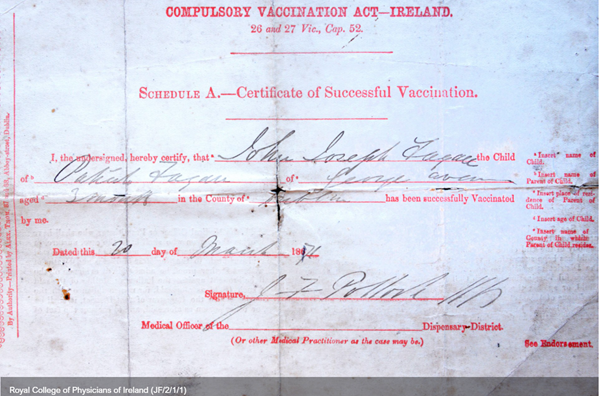
What do we know about pregnancy, #COVID19 and vaccination? A thread.
@HSEImm @RCPI_news @RCPI_ObsGyn
(1/13)
@HSEImm @RCPI_news @RCPI_ObsGyn
(1/13)
Most pregnant women who are infected with SARS-CoV-2 – the virus that causes COVID – have mild or no symptoms and don’t experience serious complications.
However, there is increasing evidence that #COVID19 can affect your pregnancy.
(2/13)
However, there is increasing evidence that #COVID19 can affect your pregnancy.
(2/13)
For example, pregnant women with COVID-19 are at higher risk of preterm birth, high blood pressure, postpartum haemorrhage and stillbirth than those who are not infected with #COVID19.
In addition, some pregnant women with COVID-19 will become severely unwell.
(3/13)
In addition, some pregnant women with COVID-19 will become severely unwell.
(3/13)
There is growing evidence that pregnant women may be at increased risk of severe illness from #COVID19 compared with non-pregnant women, particularly in the third trimester.
(4/13)
(4/13)
From June to Oct 2021;
- 1 in 3 women (n=12) aged 25-44 yrs admitted to ICU were pregnant.
- None had been fully vaccinated.
- 10/12 were in the third trimester.
- 6 required mechanical ventilation.
- 5 more women were admitted to ICU in the 6 weeks after pregnancy.
(5/13)
- 1 in 3 women (n=12) aged 25-44 yrs admitted to ICU were pregnant.
- None had been fully vaccinated.
- 10/12 were in the third trimester.
- 6 required mechanical ventilation.
- 5 more women were admitted to ICU in the 6 weeks after pregnancy.
(5/13)
UK data from Feb to Sept 2021 shows that >98% of women admitted with symptomatic COVID-19 in pregnancy were unvaccinated. Of 235 women admitted to ICU, only 3 had received a single dose of vaccine, and none had received both doses. npeu.ox.ac.uk/news/2171-covi… via @NPEU_Oxford
(6/13)
(6/13)
If you have already had #COVID19 you should still consider getting the COVID-19 vaccine.
Although previous infection does provide some protection, vaccination is still recommended.
(7/13)
Although previous infection does provide some protection, vaccination is still recommended.
(7/13)
If you have had laboratory-confirmed COVID-19 in the previous 6 months, you will only need one dose of vaccine.
COVID-19 vaccines can be given at any time in pregnancy.
Breastfeeding women can receive a #COVIDvaccine without having to stop breastfeeding.
(8/13)
COVID-19 vaccines can be given at any time in pregnancy.
Breastfeeding women can receive a #COVIDvaccine without having to stop breastfeeding.
(8/13)
There is no evidence to suggest that COVID-19 #vaccines affect fertility.
Women planning a pregnancy or #fertility treatment can receive a #COVID19 vaccine and do not need to delay conception.
(9/13)
Women planning a pregnancy or #fertility treatment can receive a #COVID19 vaccine and do not need to delay conception.
(9/13)
There is now a growing body of evidence on the safety and effectiveness of #COVID19 vaccination – in both animal and human studies – clearly indicating that the benefits of vaccination outweigh any known or potential risks of COVID-19 vaccination during pregnancy.
(10/13)
(10/13)
Lots more information is available here:
www2.hse.ie/screening-and-…
and here:
rcpi.ie/news/releases/…
If you have concerns or questions please talk to your obstetrician, midwife, GP or pharmacist.
(11/13)
www2.hse.ie/screening-and-…
and here:
rcpi.ie/news/releases/…
If you have concerns or questions please talk to your obstetrician, midwife, GP or pharmacist.
(11/13)
Along with the #COVID19 vaccine, women who are pregnant should also get vaccinated against
- Pertussis (Whooping cough) - during each pregnancy, between weeks 16 & 36 of pregnancy
- The ‘flu - during each pregnancy, at any time of pregnancy
www2.hse.ie/wellbeing/preg…
@HSEImm
(12/13)
- Pertussis (Whooping cough) - during each pregnancy, between weeks 16 & 36 of pregnancy
- The ‘flu - during each pregnancy, at any time of pregnancy
www2.hse.ie/wellbeing/preg…
@HSEImm
(12/13)
Vaccines save lives and getting the #COVID19, pertussis and flu vaccines can keep you, your baby and your loved ones, safe and out of hospital. #vaccineswork
(13/13)
(13/13)
• • •
Missing some Tweet in this thread? You can try to
force a refresh





